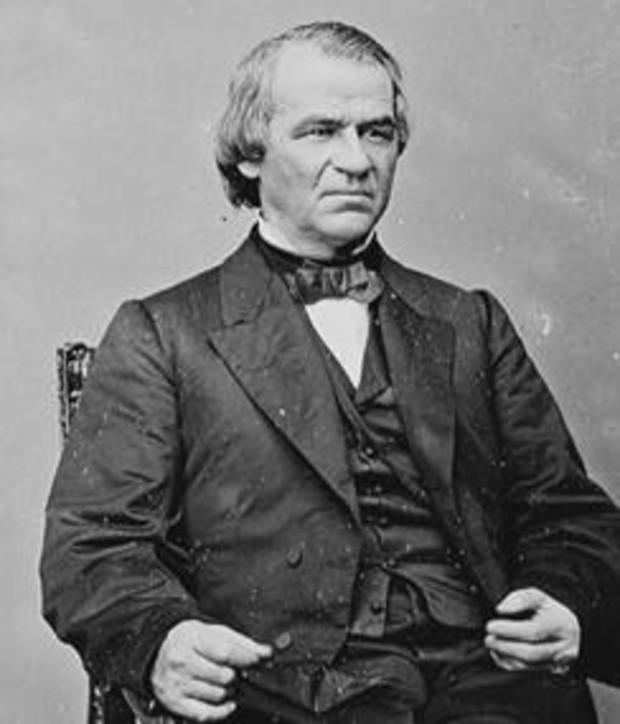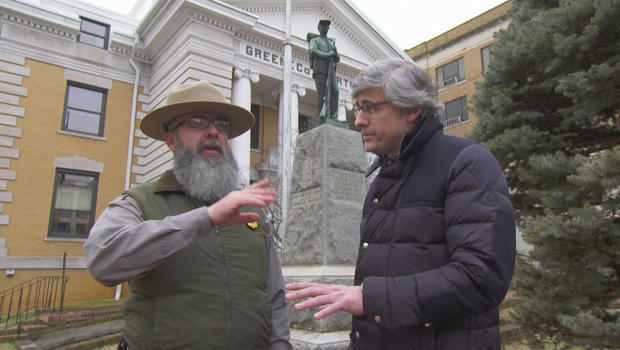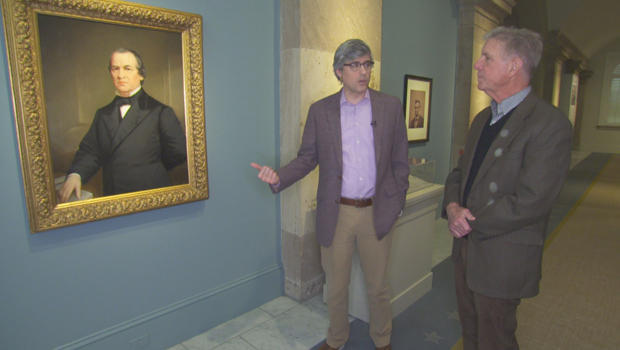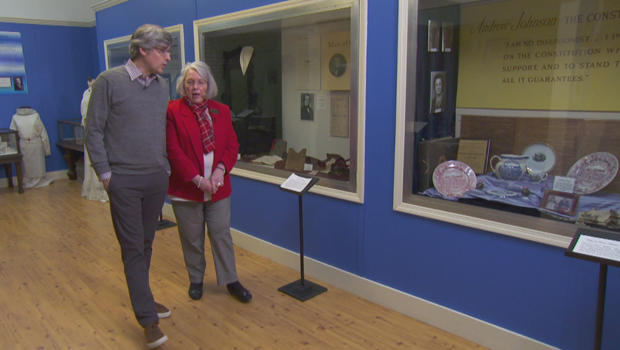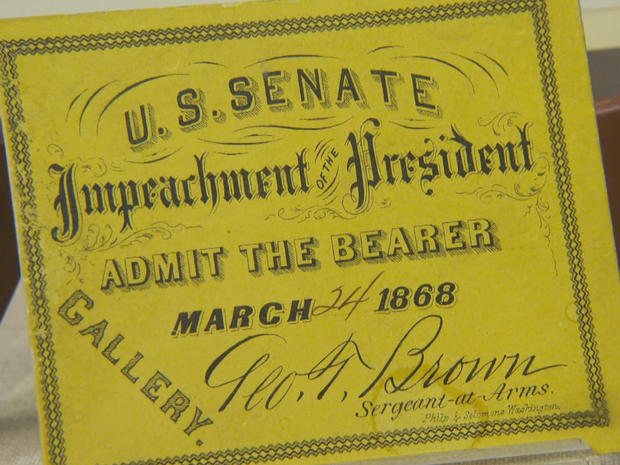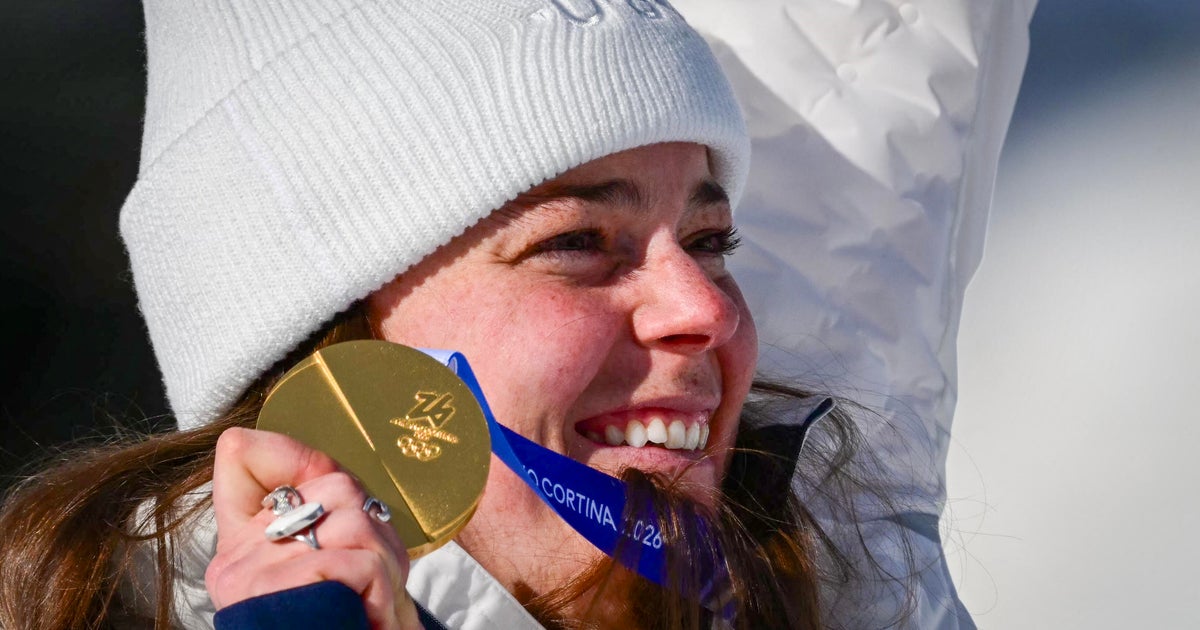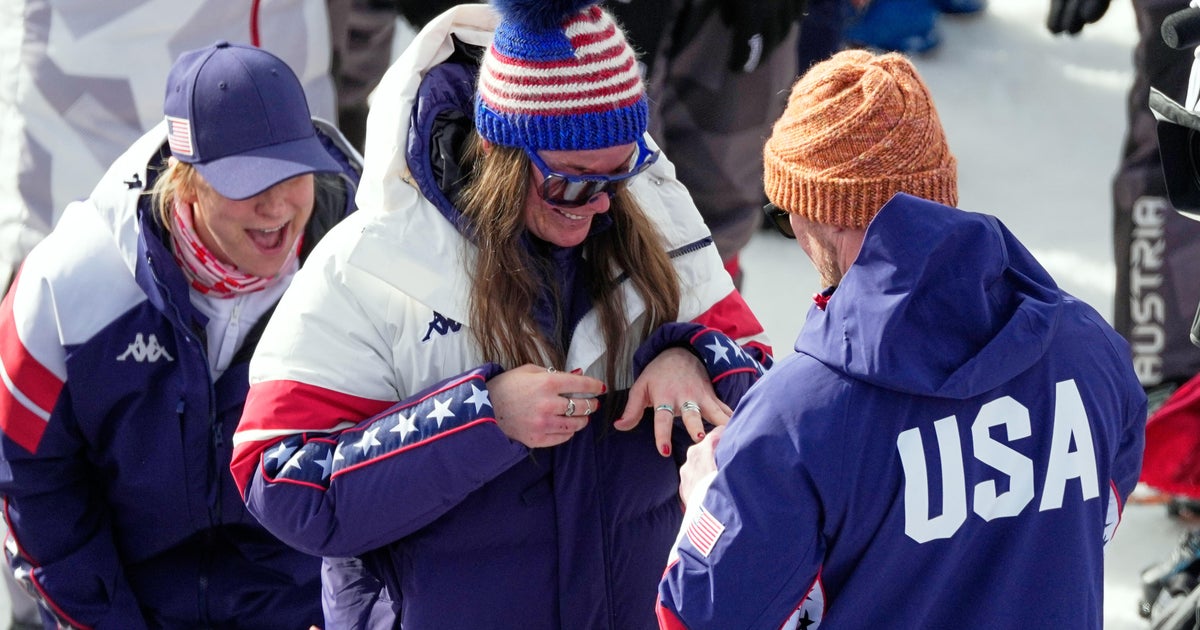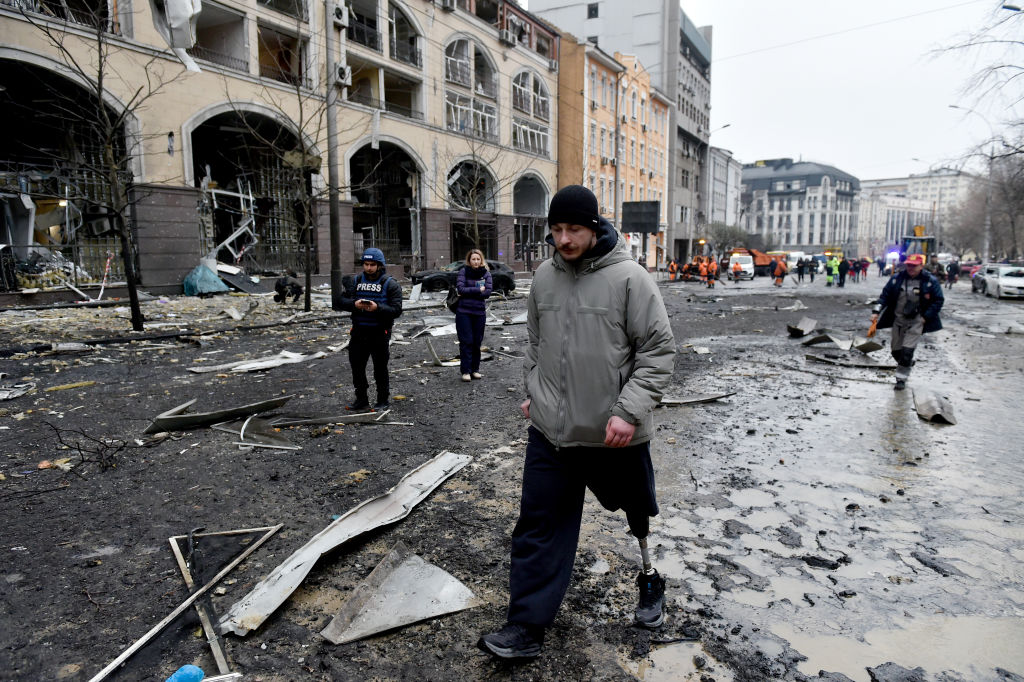Andrew Johnson: The unfortunate president
A question on this Presidents' Day weekend: Which of our former Chief Executives was the worst ever? Presidential historians have been making a list ... and our Mo Rocca may have the winner:
No survey of forgotten presidents (such as James Buchanan, Chester A. Arthur or Millard Fillmore) would be complete without our 17th president, Andrew Johnson.
His presidency would end in disgrace, but in 1864, when Republican President Abraham Lincoln was running for re-election during the Civil War and needed a running mate who'd balance the ticket, Tennessee's Andrew Johnson was his pick.
"He was something politically that really wasn't even supposed to exist," said Ranger Burke Greear, at the Andrew Johnson National Historic Site in Greeneville, Tennessee. "He was a Union-supporting Southern Democrat. It's kind of like Sasquatch. You know, 'I've heard you exist, but I've never seen one,' right?"
"I am loving that banner, 'Lincoln-Sasquatch, '64,'" Rocca laughed.
In Greeneville, you'll also find the Andrew Johnson Bank, the Andrew Johnson Highway, the Andrew Johnson Inn.
"He is always, for this town, gonna be the local-boy-does-good story," said Ranger Greear.
Is the town still proud of him? "Absolutely."
Johnson was a tailor here before he ran for office. And his shop -- the original still stands -- became a place for everyday people to talk politics.
"His people were the yeoman, the good, solid, working people of eastern Tennessee," said historian Howard Means. "He stood for public schools, he stood for public libraries. He liked state fairs, anything to give the working man a leg up in society."
He notes that Johnson's backstory was every bit as raw as the railsplitter's.
Rocca asked, "If Lincoln and Johnson were competing in the humble Olympics, who would come away with the gold?"
"I think Johnson would have," Means replied. "His father died when he was three years old, it was a penniless family. He has basically no education. His wife taught him to write when he was in his early 20s."
Which made his political ascent all the more stunning: from town alderman all the way up to vice president ,he didn't lose a single election. But on the very day Lincoln delivered his iconic Second Inaugural Address, Johnson had a little too much whiskey.
"He rambles really drunkenly for about seven, eight minutes," said Means. "He's reeling around some. He's filled with a rage, basically, criticizing the ambassadors who were there as, you know, 'high-born' and all that sort of stuff."
Still, there were high hopes for Johnson after the shock of Lincoln's assassination just five weeks later on Good Friday.
"When you look at sermons that were preached that Easter Sunday, many Northern churches talked about the nation being delivered at the right moment to the man who could do the job," Means said.
Rocca said, "The stage was set for this guy to be a savior."
"Exactly. Yeah, yeah, precisely."
But the task ahead of Johnson may have been the most daunting any president has ever faced. "It's impossible to conceive of the America of 1865 when Johnson took office," said Means. "You're trying to heal the wounds of a four-year war with 600,000 people dead. And there are four million freed slaves in the South, in a country of 30 million people."
Johnson wanted the post-war South treated leniently. As for the fate of freed slaves, he wanted that left up to the states. But many of the so-called "Radical Republicans" wanted to punish the secessionists and to guarantee civil and voting rights to freedmen.
The clash led to crisis, with the president all but declaring war on Congress. In his Washington's Birthday speech in 1866, he declaimed: "They may slander me, but let me say, I do not intend to be bullied by my enemies."
Did Johnson take things personally? "Yes, he was very thin-skinned. He took just about everything personally. He remembered taunts and jeers from decades gone by. He never forgot the sound of somebody criticizing him."
Ranger Greear said, "The more you would try to get him to open up and listen to a different side of thinking, the further back he would go, almost to being like petulant, if you will, almost like a child. He would just ball up and not really want to hear anything you had to say."
Despite the personal pleas of abolitionist leader Frederick Douglass, Johnson vetoed major bills that would have helped former slaves. Congress overrode him. Finally, the bad blood spilled over. The president was impeached, and escaped removal from office by just one vote.
At the Greene County History Museum, Betty Fletcher is the keeper of all things Andrew Johnson, including tickets to his 1868 impeachment trial.
"I think it's valuable, very valuable," she laughed. "It's the complete set!"
"Oh, those are pretty great," said Rocca, "unless you're the guy being impeached."
Rocca asked Ranger Greear, "He's not a success as president. How do you explain that to people?"
"I don't know who would have been a success right then, right there," he replied. "Lincoln may have had a little easier row to hoe, just because of his political saavy. But I certainly don't think it would have been smooth sailing even for Lincoln."
At the National Portrait Gallery in Washington, Abraham Lincoln is prominently placed -- casting a shadow on his much-less-popular successor. Johnson's portrait can be found off to the side.
Rocca asked, "How do you think he'd feel about being stuck in the corner? I mean, Lincoln's where all the traffic is."
"He wouldn't like it," laughed Means. "Even Buchanan gets a better spot over there!"
"Now that's an insult!"
For more info:
- Andrew Johnson National Historic Site, Greeneville, Tenn.
- howardmeans.com
- Greene County History Museum, Greeneville, Tenn.
- National Portrait Gallery, Washington, D.C.
- "America's Presidents" online exhibit, National Portrait Gallery
